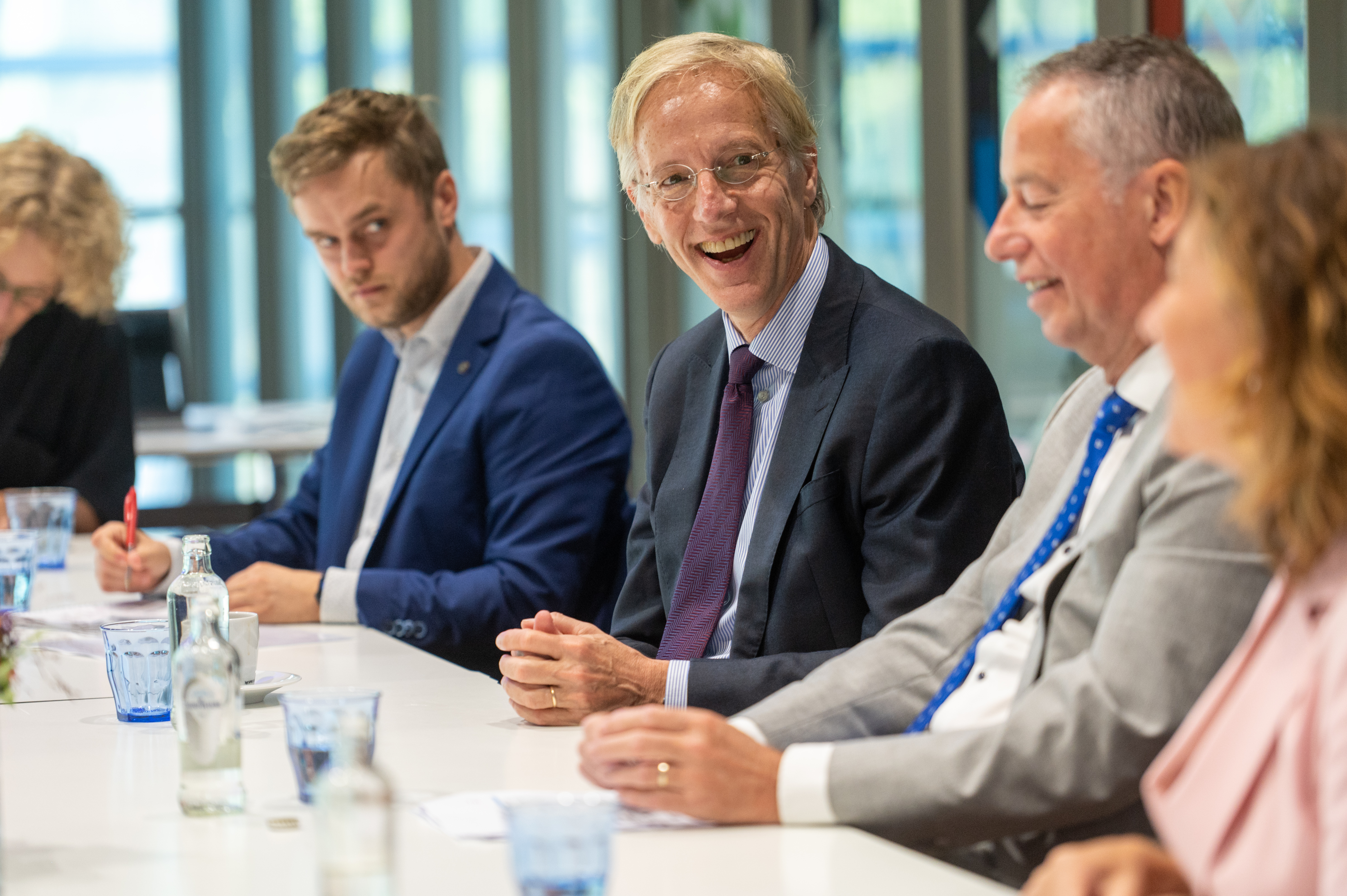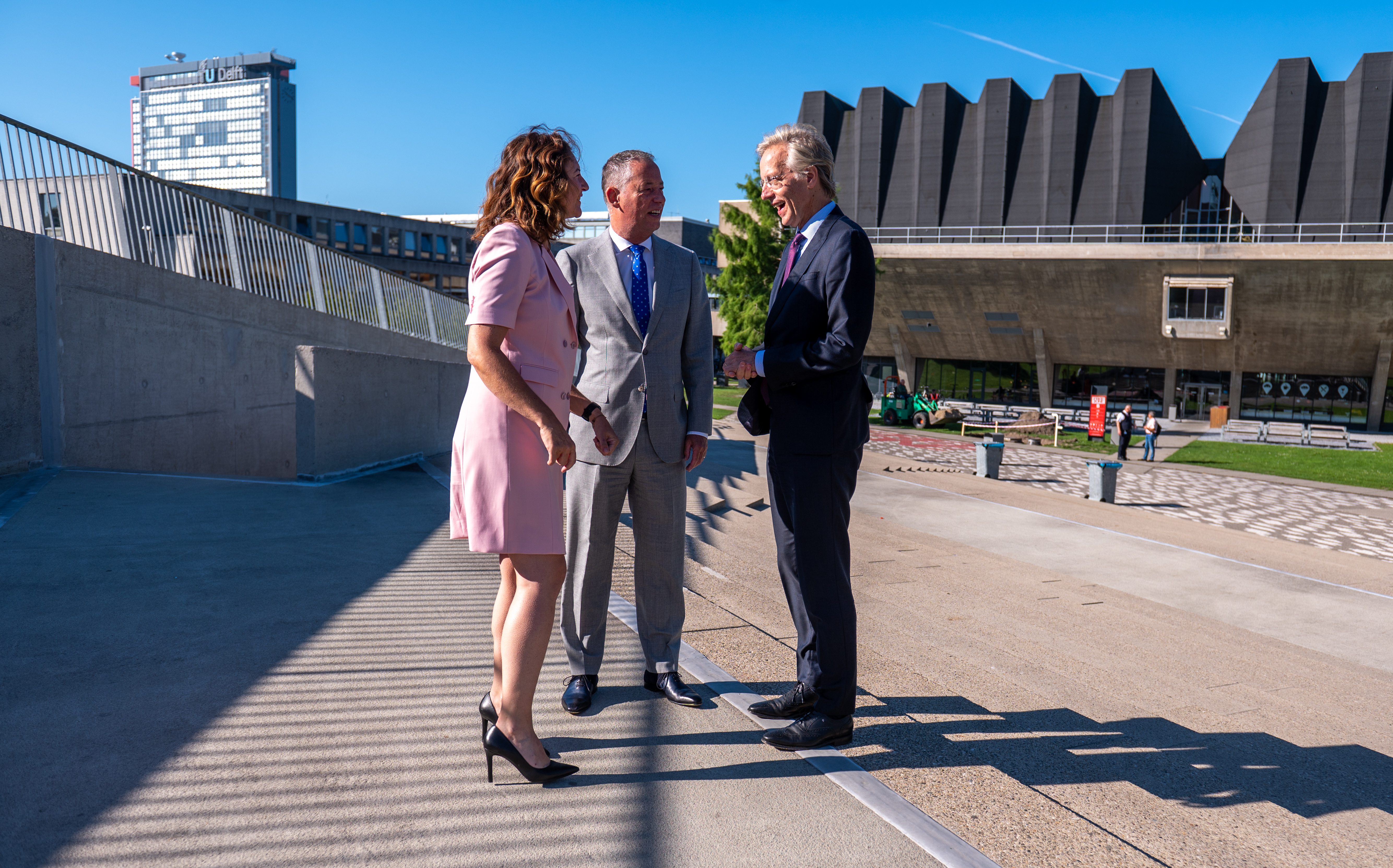Discussing Open Science with Minister Robbert Dijkgraaf
On September 7th, Robbert Dijkgraaf, Minister of Education, Culture and Science met with TU Delft scientists to speak about Open Science. They talked about the dilemmas, challenges and possibilities of Open Science. Associate professor Anneke Zuiderwijk, an expert in open data, looks back at a fruitful discussion.
Open Science
Open Science is scientific research that is transparent and accessible to everyone. Many academics promote Open Science as a way to develop collaborative networks of knowledge and promote knowledge dissemination across all levels of society.
Open Science has benefitted scientists at TU Delft an beyond in terms of visibility, accountability, transparency and trust. However, there are many barriers to Open Science and big questions concerning the topic. This is what participants of the round table discussion wanted to explore with minister Dijkgraaf.
Obstacles
Anneke Zuiderwijk looks back at a successful discussion: ‘The minister showed great interest in the subject. He asked very relevant questions and you could tell that he is originally a scientist’.
The participants often stated how important Open Science is. They discussed several barriers with regards to open science. For instance, how major publishers still have big profit margins and benefit from the data that researchers grant them. Scientists publish their work through these big organisations and are dependent on them. “Oftentimes, these publishers know more about the data and publications of universities than the universities themselves.” Zuiderwijk elaborates.
There are plenty of obstacles when it comes to openly sharing data as a scientist. Knowledge security, habits, peer pressure, fear of it getting into the wrong hands or the excessive focus on individual performance are some examples. These hinder the capacity to collectively gather and share knowledge.
Embracing Open Science
‘We still know very little about the effects and impact of Open Science,’ says Zuiderwijk. She also notes that Open Science is not a top priority for most colleagues, despite significant investments (20 million per year until 2032) and Open Science programmes from the European Commission and NWO. ‘Researchers simply have too much on their minds and not enough time to focus on opening up their data.’ She argues that this is also partly due to the fact that achieving goals related to Open Science is not an explicit part of performance reviews or other evaluations that are relevant in the academic world. Zuiderwijk: ‘I think this would really make a big difference for Open Science to become more embraced’.
Photographer Sicco van Grieken


